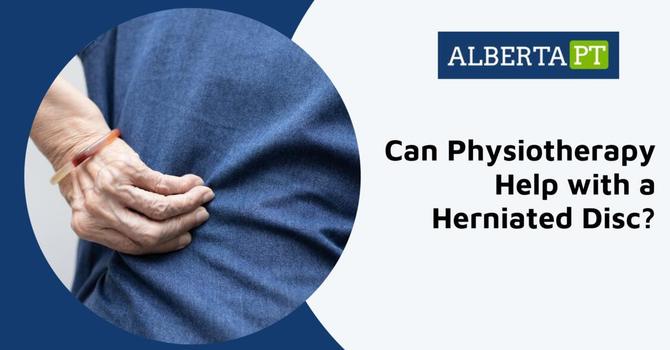
A bunion is an unpleasant, but surprisingly common foot condition that affects the joint of the big toe. When you get a bunion, it indicates your first toe is driving forward and rising over the second toe.
The consequence is a bulge on the edge of your big toe (known as a bunion) and typically some level of discomfort. It is not just an aesthetic issue, either; your bunion may become so inflamed that it hurts to walk or even stand up for long periods. With time, the bunion grows larger and more painful since the big toe can't return to its normal position.
Alleviating bunions may be tough given that lots of standard footwear and clothing can worsen your symptoms. Bunion pads, splints, and sleeves can help reduce the discomfort of bunions, but these types of solutions don't deal with the genuine cause of the issue, and your bunion will definitely become worse over time.
You might have heard that bunions may be eased and even fully treated with orthotics. Nevertheless, you may not know what exactly orthotics are, what they do, or whether they are an effective option for your bunions.
Orthotics is the name used for supportive products that repair the alignment of an individual's feet. They can deal with a variety of foot problems.
For example, if you suffer from bunions and feel discomfort when taking a walk or standing, orthotics can help relieve that pain by remedying how your feet line up. These products help to line up your feet by delivering support where it is needed most--all around the bunions on your feet.
In this article, you will discover every detail you need to know about custom orthotics for bunions. Keep reading to find out what causes bunions, their consequences, how you can prevent them from getting worse and the perfect orthotics that can make them much better.
What Creates Bunions?
A bunion is triggered by the big toe pressing forward and overlapping the second toe. This forces the joint at the base of your first toe to get inflamed and irritated. This irritation can result in swelling of the soft tissue surrounding your joint and trigger bursitis.
Normally, a bunion is hereditary, indicating you are most likely to suffer one if your relatives have them. You can also get a bunion if you have a foot deformity like high arches or flat feet, if you are obese, or if you dress in slender footwear that squish your toes together.
Furthermore, you are most likely to get bunions as you age due to the general deterioration that the body experiences over time.
What are Orthotics for Bunions?
Orthotics are restorative devices that are used to straighten the feet and address several foot problems. If you have bunions, orthotic shoes or inserts can help ease your discomfort by restraightening the feet to fix the alignment of the toes and eliminate the stress on your bunions.
Orthotic insoles are comfy and quickly fit into almost any kind of shoe. They're usually made from foam covered in material, although they may be made from more rigid products like plastic or aluminum, and are available in a range of various sizes and shapes.
Picking the Very Best Orthotics for Bunions
When buying orthotics for bunions, there are a few things to bear in mind:
First, make sure you speak with your physiotherapist or podiatrist about your need for orthotics. Your podiatrist or physiotherapist can help identify the seriousness of your bunions and recommend the best kind of orthotic supports for your unique condition and foot shape. They can likewise recommend whether you should get customized orthotics, or if off-the-shelf orthotics will do.
Second of all, your orthotics should be comfy. You should be able to wear them for extended periods without feeling any pain or discomfort.
Third, you need to also make sure your orthotics are the appropriate ones for your foot type and resolve the complications you're experiencing. Orthotic supports are not one-size-fits-all and are made to fit your particular foot type.
If your orthotics aren't designed for bunions, they might not give the ideal support and realignment you really need. You should see to it that the orthotics fit comfortably around your big toe and have the right arch support.
Frequently Asked Questions
Why Would I Really Need to Wear Orthotics?
If you have foot pain or an issue with your posture, orthotic supports are a fantastic way to relieve pain and realign your feet. They're also terrific if you have bunions and desire some additional support around the bunion. If you want to prevent your bunions from worsening, use orthotics.
If you do not wear orthotics, your bunions will get bigger and more agonizing over time. Plus, if you are a runner, using orthotics is a terrific way to protect against injuries like ankle and knee sprains. They may also help avoid commonplace running injuries such as plantar fasciitis.
How Much Do Orthotics for Bunions Cost?
Orthotic supports can cost anywhere from $50 to $400 or more, depending on the brand and kind of orthotics you purchase. You might also pay more for custom-made orthotics. Although that may look expensive, orthotic supports can last upwards of six months or more, which is well worth the freedom you will experience from bunion pain.
Final Thoughts
Whether you're suffering from existing bunions or attempting to stop future bunions, orthotics may be an excellent choice. They're comfy, quick and easy to wear, and come in a variety of various sizes, shapes and designs.
They can help realign your feet and alleviate the pain caused by bunions. They may be a bit costly, yet they can last for months and are worth the investment.
You have made it to the end of the blog post, but now it is time to put this information into practice. Are you currently dealing with bunions and foot discomfort?
Contact Alberta PT today, and allow us to help you start the healing process and put your bunion pain in the past. Now accepting new clients!





